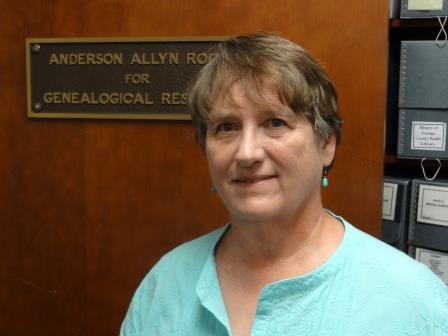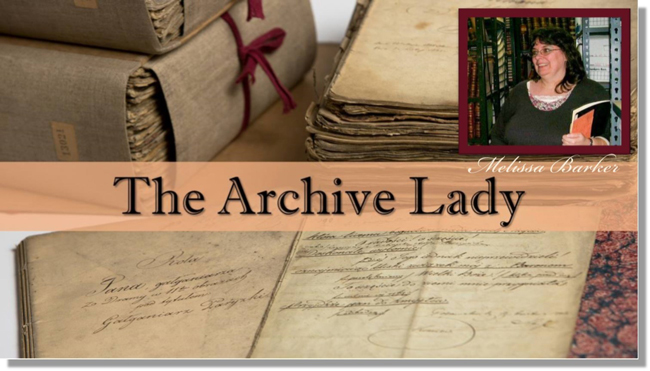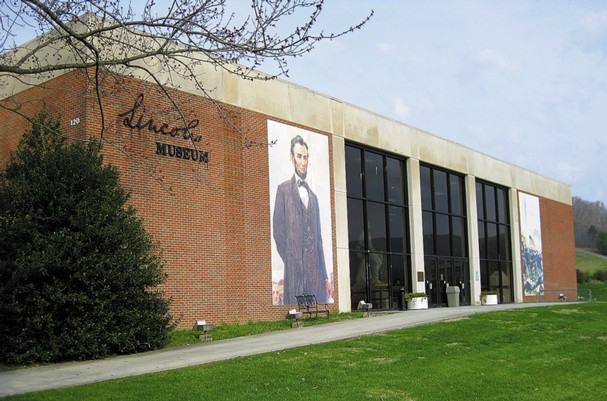Did you know that some museums also house archives? Yes, that’s right! Museums aren’t just for artifacts and historical objects. They sometimes house documents, photographs, and ephemera. Here’s how to learn about archives at your favorite museums (big or small) and how to gain access to archival material that may reveal your family history.
Many genealogists don’t know that many of our wonderful museums have both a “front room” and a “back room.” The front room is filled with displays and exhibits that we all love to walk through and see. There could be multiple rooms filled with artifacts on display in glass cases for the visitor to enjoy. But the back room is where the archived records are located. This back room is not seen by the public but most of the time, it is there. There are shelves filled with historical and genealogical records that the genealogist shouldn’t miss out on.
For instance, at the Lincoln Memorial University Museum in Harrogate, Tennessee, they have the second largest collection of Abraham Lincoln artifacts and memorabilia in the United States in their museum. They also have a back room filled with historical and genealogical records that genealogists can access for genealogy research!
A fantastic find in a museum archive
Genealogy Gems Contributing Editor Sunny Morton shares this example of a family history treasure found buried in a museum’s archive:
“My mom Cheryl McClellan (a professional genealogy librarian who was interviewed by Lisa Louise Cooke in the Genealogy Gems Premium Podcast episode #125), visited the Steelworks Center of the West in Pueblo, Colorado with her siblings to get a better sense of the industry that employed her family there.
Imagine her glee when she discovered that the museum has an archive! According to its website, the collections include ‘over 100,000 photographs, more than 150 films, 30,000 maps and drawings, hundreds of ledgers, and internal publications such as Camp and Plant, The Industrial Bulletin, and The Blast. These are in addition to the core collection of approximately 6,000 cubic feet of records documenting CF&I’s steel production, iron and coal mining, geological records, labor relations, land and water resources, employee records, invoices and work orders, executive memoranda, correspondence, and much more, documenting every aspect of the company’s rich history.’
Unfortunately, my mom didn’t have time to stay and explore the archive in-depth. But she started corresponding with the archivist, who sent her priceless documents relating to her grandfather, John Felix. Among these was a copy of his original application for employment, his employee service record and a clipping from an employee newsletter about his exploits as a fisherman:

Sunny’s Mom: Cheryl McClellan,
Professional Genealogy Librarian
How to find museums with archives
You can look for museums with archives in them in a few different ways:
- When visiting a local museum, ask the curator or museum director if they have any records available for research in their collections.
- Go to the websites of museums–especially historical museums–you may have visited in the past. See whether they mention having an archive or research room.
- Google the name of your ancestor’s town (or a bigger city nearby), along with the state name, and add the search term museum.
- Contact a librarian, archivist, or the Chamber of Commerce in your ancestor’s town.
- Use the free website, ArchiveGrid, to locate archival collections at museums. On the home page, you’ll find a map that looks something like this:
Use the map view to identify archival collections, some of which may be housed in museums, near your ancestors’ home. Hover over the red markers to see the names of institutions. Click on them to find contact information and search their collections. Once you have located the museum, contact them by phone or email and ask them about their archived records. If you can’t visit in person–or you can’t stay long enough to really search their collections–start corresponding with the archivist, as Sunny’s mom did. You may need to be patient: many archivists only work part-time and stay quite busy. But your patience may be rewarded beautifully!
As genealogists, we will search anywhere and everywhere for records about our ancestors to help tell their life story: archives, libraries, historical societies, genealogical societies, and museums! So, the next time you travel to where your ancestors came from, check and see if there is a museum. If there is one, stop by and ask if they have a “back room” with archived records. You just might be pleasantly surprised.
The Archive Lady Melissa Barker appears regularly on the Genealogy Gems Premium Podcast, available to Genealogy Gems Premium eLearning members. Internationally-renowned genealogy educator and podcast pioneer Lisa Louise Cooke hosts and produces the Premium Podcast, weaving together inspiring stories, research strategies and exclusive interviews. (You can also check out the free monthly Genealogy Gems Podcast, with over 2.5 million downloads worldwide and plenty of inspiration and information that can help your family history research.)

About the Author: Melissa Barker
Melissa is a Certified Archives Records Manager, the Houston County, Tennessee Archivist and author of the popular blog A Genealogist in the Archives and an advice columnist. She has been researching her own family history for the past 27 years.






It never occurred to me to look at the holdings of one of the museums in Seattle, the Museum of History and Industry. After reading your comments, I checked the website and found a picture of William L. Boyd (Hopalong Cassidy) when he visited Seattle in 1951. Low and behold, one of the children pictured is a good friend. i can’t wait to tell him.